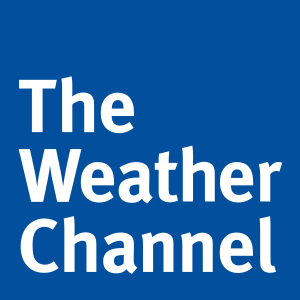Los Angeles accuses Weather Channel app of deceitful sale of user data

Photo courtesy of Wikimedia Commons.
The city of Los Angeles alleges that the Weather Channel app deceptively collected, amassed and sold users’ location data.
In a lawsuit filed Thursday in California Superior Court, lawyers for the city say the popular smartphone application went beyond its terms of service by “leading users to believe that their data will only be used to provide them with ‘personalized local weather data, alerts and forecasts.’ ” Instead, the suit alleges, the company profited from the data by monetizing it.
The suit seeks injunctive relief to put an end to what the city considers unfair business practices and civil penalties up to $2,500 for each violation.
According to the Weather Co., which is behind the app and owned by IBM, the app has 45 million active, daily users. It has been downloaded over 100 million times, according to the New York Times.
Engadget, Motherboard and the New York Times have the story.
“If the cost of a weather forecast will be the sacrifice of deeply private information—like precisely where we are, day and night—it must be clear, in advance,” said Los Angeles city attorney Mike Feuer in a statement. “But we allege [The Weather Co.] elevates corporate profits over users’ privacy, misleading them into allowing their movements to be tracked, 24/7. We’re acting to stop this alleged deceit.”
The suit claims the information gathered was sold and used for targeted ads by at least one dozen third-party websites over the past 19 months and by hedge funds looking to analyze consumer behavior.
“The Weather Company has always been transparent with use of location data; the disclosures are fully appropriate, and we will defend them vigorously,” said Saswato Das, an IBM spokesman, according to the Times. Not alone, a slew of weather apps has courted controversy for their treatment of user data.
AccuWeather was found in 2017 to share precise user location data even after it removed a privacy-busting feature from its software, according to ZDNet. In December, the New York Times reported that the Weather Bug and Weather Channel apps were sending user location data to third parties—a report cited by the city attorney in last week’s filing. And this month, the Wall Street Journal reported that a Chinese-based app, Weather Forecast—World Weather Accurate Radar, collected location data, email addresses and phone IMEI identification numbers. It also attempted to secretly subscribe users to paid virtual reality sites.
Last fall, the ABA Standing Committee on Ethics and Professional Responsibility released Formal Opinion 483, which reaffirmed that lawyers must safeguard client data and notify clients of a data breach. Among the opinion’s guidance, it recommended declining the use of a technology for a task if it is not necessary. The idea here being that internet-enabled services can increase an attorney’s vulnerabilities.



